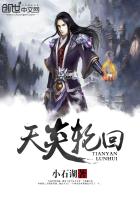By a long and ascetic novitiate, this ghostly ruler was reputed to have acquired such sanctity that the waters and the rain obeyed him, and the weather depended on his will. The Mexican kings at their accession, as we have seen, took an oath that they would make the sun to shine, the clouds to give rain, the rivers to flow, and the earth to bring forth fruits in abundance. We are told that Montezuma, the last king of Mexico, was worshipped by his people as a god.
The early Babylonian kings, from the time of Sargon I. till the fourth dynasty of Ur or later, claimed to be gods in their lifetime. The monarchs of the fourth dynasty of Ur in particular had temples built in their honour; they set up their statues in various sanctuaries and commanded the people to sacrifice to them; the eighth month was especially dedicated to the kings, and sacrifices were offered to them at the new moon and on the fifteenth of each month. Again, the Parthian monarchs of the Arsacid house styled themselves brothers of the sun and moon and were worshipped as deities. It was esteemed sacrilege to strike even a private member of the Arsacid family in a brawl.
The kings of Egypt were deified in their lifetime, sacrifices were offered to them, and their worship was celebrated in special temples and by special priests. Indeed the worship of the kings sometimes cast that of the gods into the shade. Thus in the reign of Merenra a high official declared that he had built many holy places in order that the spirits of the king, the ever-living Merenra, might be invoked more than all the gods. It has never been doubted that the king claimed actual divinity; he was the 'great god,' the'golden Horus,' and son of Ra. He claimed authority not only over Egypt, but over'all lands and nations,''the whole world in its length and its breadth, the east and the west,''the entire compass of the great circuit of the sun,''the sky and what is in it, the earth and all that is upon it,''every creature that walks upon two or upon four legs, all that fly or flutter, the whole world offers her productions to him.' Whatever in fact might be asserted of the Sun-god, was dogmatically predicable of the king of Egypt. His titles were directly derived from those of the Sun-god. In the course of his existence, we are told, the king of Egypt exhausted all the possible conceptions of divinity which the Egyptians had framed for themselves. A superhuman god by his birth and by his royal office, he became the deified man after his death.
Thus all that was known of the divine was summed up in him.
We have now completed our sketch, for it is no more than a sketch, of the evolution of that sacred kingship which attained its highest form, its most absolute expression, in the monarchies of Peru and Egypt. Historically, the institution appears to have originated in the order of public magicians or medicine-men; logically it rests on a mistaken deduction from the association of ideas. Men mistook the order of their ideas for the order of nature, and hence imagined that the control which they have, or seem to have, over their thoughts, permitted them to exercise a corresponding control over things. The men who for one reason or another, because of the strength or the weakness of their natural parts, were supposed to possess these magical powers in the highest degree, were gradually marked off from their fellows and became a separate class, who were destined to exercise a most far-reaching influence on the political, religious, and intellectual evolution of mankind. Social progress, as we know, consists mainly in a successive differentiation of functions, or, in ******r language, a division of labour. The work which in primitive society is done by all alike and by all equally ill, or nearly so, is gradually distributed among different classes of workers and executed more and more perfectly; and so far as the products, material or immaterial, of this specialised labour are shared by all, the whole community benefits by the increasing specialisation. Now magicians or medicine-men appear to constitute the oldest artificial or professional class in the evolution of society. For sorcerers are found in every savage tribe known to us; and among the lowest savages, such as the Australian aborigines, they are the only professional class that exists. As time goes on, and the process of differentiation continues, the order of medicine-men is itself subdivided into such classes as the healers of disease, the makers of rain, and so forth; while the most powerful member of the order wins for himself a position as chief and gradually develops into a sacred king, his old magical functions falling more and more into the background and being exchanged for priestly or even divine duties, in proportion as magic is slowly ousted by religion. Still later, a partition is effected between the civil and the religious aspect of the kingship, the temporal power being committed to one man and the spiritual to another. Meanwhile the magicians, who may be repressed but cannot be extirpated by the predominance of religion, still addict themselves to their old occult arts in preference to the newer ritual of sacrifice and prayer; and in time the more sagacious of their number perceive the fallacy of magic and hit upon a more effectual mode of manipulating the forces of nature for the good of man; in short, they abandon sorcery for science. I am far from affirming that the course of development has everywhere rigidly followed these lines: it has doubtless varied greatly in different societies. I merely mean to indicate in the broadest outline what I conceive to have been its general trend. Regarded from the industrial point of view the evolution has been from uniformity to diversity of function: regarded from the political point of view, it has been from democracy to despotism. With the later history of monarchy, especially with the decay of despotism and its displacement by forms of government better adapted to the higher needs of humanity, we are not concerned in this enquiry: our theme is the growth, not the decay, of a great and, in its time, beneficent institution.















